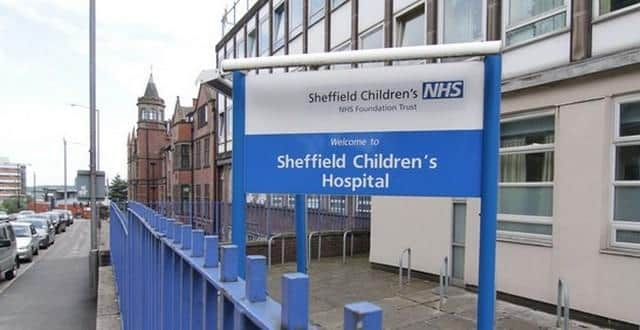Patients waiting longer than hospital target times in Sheffield as disruption continues
and live on Freeview channel 276
With colder weather approaching, experts are warning that the NHS must be winter-proof to prevent seasonal flu and further Covid-19 outbreaks from bringing routine surgeries to a halt.
According to NHS rules, patients referred for non-urgent consultant-led elective care should start treatment within 18 weeks.
Advertisement
Hide AdAdvertisement
Hide AdBut NHS data shows 45 per cent of patients on the waiting list for elective operations or other treatment at Sheffield Children's NHS Foundation Trust at the end of July had been waiting longer – up from 10% in the same month last year.


It means 4,154 patients had been waiting longer than the target time.
NHS trusts are normally expected to make sure no more than 8% of patients are left waiting beyond the 18-week maximum target.
But non-urgent elective operations – such as hip and knee replacements – were suspended during the height of lockdown to free up beds for coronavirus patients, leading to delayed care for many patients across England.
Advertisement
Hide AdAdvertisement
Hide AdJohn Somers, Chief Executive at Sheffield Children’s NHS Foundation Trust said: “In March 2020 Sheffield Children’s postponed all non-urgent surgery following NHS England guidance in response to the COVID pandemic. Sheffield Children’s continued to do emergency surgery throughout and also cared for South Yorkshire and Bassetlaw patients requiring emergency surgery during this time.
“In June, we restarted non-urgent surgery and procedures, following national guidance. Since then we have gradually increased the number of patients seen for their appointments, surgery and treatment to ensure that this is done safely. We are working hard across the Trust to see patients whose care was delayed earlier this year due to our collective response to the COVID pandemic. Our outpatient appointments continue to be held as a combination of face to face, telephone and on line appointments.
“In addition to our usual winter preparations at Sheffield Children’s we are pleased to have been provided national funding to support our work in preparing for winter and our ongoing response to COVID. We have done a lot of work across the Trust to ensure the safety of our patients and staff and this funding will help maintain this safe environment as we increase our activity as well as improving our patient journey and to ensure we continue to provide a welcoming environment.”
Professor Neil Mortensen, president of the Royal College of Surgeons, said patients who have been waiting months for treatment "cannot afford to wait until next spring".
Advertisement
Hide AdAdvertisement
Hide AdHe added: “We urgently need to build up our hospital reserves if we are to see this winter through.
"Flu, together with continuing local Covid-19 outbreaks, must not bring surgery to a standstill again, or thousands more will suffer.”
Nationally, 2.2 million people were still waiting for treatment after 18 weeks in July – the highest number for a single month since records began in 2007.
At 47% of those on the waiting list, it was also the worst performance on record.
Advertisement
Hide AdAdvertisement
Hide AdSome 83,000 patients had been waiting for over a year, the most for any month in more than a decade.
The lengthy waits are a “timely reality check on the challenges facing NHS services” as they deal with a backlog of patients since the pandemic hit, Gbemi Babalola, senior analyst at The King’s Fund think tank, said.
Meanwhile, the Society for Acute Medicine has called on the Government to “publish full winter crisis planning proposals which include investment into staffing and estates to cope”.
Its president, Dr Susan Crossland, said: "The NHS is struggling hugely despite the drop in elective work and we are now seeing increased pressures with admissions creeping up.
Advertisement
Hide AdAdvertisement
Hide Ad“The reduction in acute beds is a major concern for us. We cannot allow corridor care to return."
Saffron Cordery, deputy chief executive of NHS Providers, said the focus should not be solely on what Covid-19 stopped the NHS from doing, and called for the hard work of frontline staff to be recognised.
She added: “We are in a much better place than many would have predicted a few months ago.
“The recovery from the peak of the pandemic was always going to require step by step increases in activity and the NHS is well on the way to restoring services.”
FROM THE EDITOR
Thank you to all who support local journalism with a digital or print subscription to The Star. The events of 2020 mean trusted, local journalism is more reliant than ever on your support. We couldn't do it without you. Subscribe here www.thestar.co.uk/subscriptions so we can keep campaigning on your behalf. Stay safe.
Comment Guidelines
National World encourages reader discussion on our stories. User feedback, insights and back-and-forth exchanges add a rich layer of context to reporting. Please review our Community Guidelines before commenting.